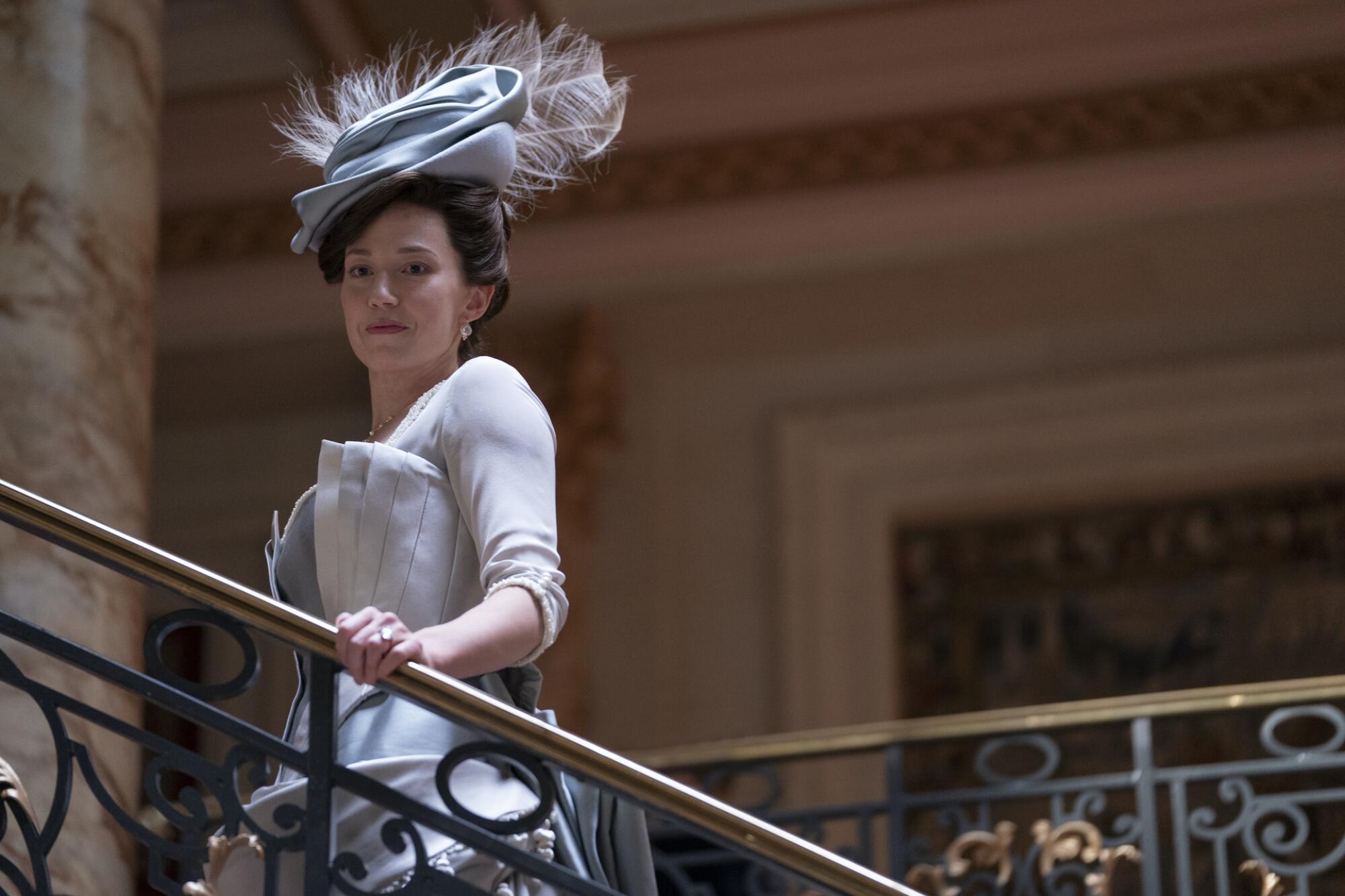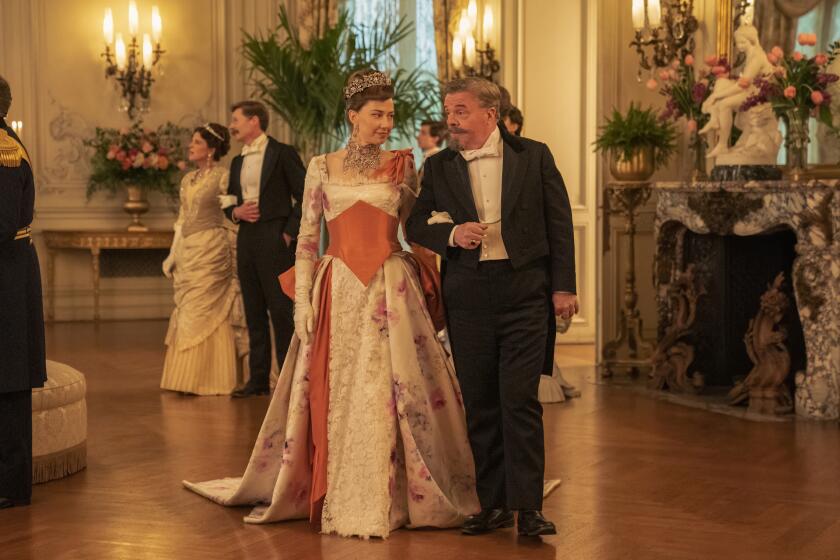
- Share via
Carrie Coon does not have time to tan. There she was in Thailand for weeks, shooting Season 3 of HBO’s “The White Lotus,” wearing sleeved bathing suits — because mere days after she’d be back in the U.S. she’d be in a corseted costume to play society wannabe Bertha on HBO’s “The Gilded Age” … and no way was Bertha going to show up bronzed.
“It was such whiplash,” says Coon with a laugh during a recent Zoom chat from her upstate New York home. She also spoke to The Envelope about life post-lockdown, the soap elements of “Gilded” and whether society knows how to tell a true feminine hero story.
In Screen Gab No. 105, we celebrate the return of ‘The Gilded Age,’ meet the showrunner behind Hulu’s new series ‘Black Cake’ and more.
We last spoke in 2021, during lockdown, about “The Nest,” and you’d said post-lockdown the first thing you planned to do was hug your parents and grandparents. Did that happen?
Sure it did! We had another baby during lockdown too. I just lost my last grandparent this year. But I had three of them into their late 90s. And my parents were here visiting when I got my Emmy nomination. It was absolute chaos at our house that morning, and they were excited to be there for the news.
So how did you get back into the world once lockdown lifted?
My life shifted so immeasurably after lockdown, because “Gilded Age” started. I had my second child in Chicago, and Tracy [husband Tracy Letts] went off to do “Winning Time: The Rise of the Lakers Dynasty.” So I was with this new baby and preparing our Chicago house for a big move. Now we have this beautiful house in Bedford, N.Y. It’s a weird country escape. I’m surrounded by huge trees — and my kids are growing up naked outside all summer.
Meanwhile, “Gilded Age” continues — you’re working on Season 3. What keeps Bertha interesting to you?
We dispatched a lot of exposition after Season 1, so Season 2 gave her more opportunities to play vulnerability. It’s always challenging to step into that period, with that heightened language, in those spaces and those dresses, and make it feel real — make yourself feel like a human being.

“Gilded Age” is this large ensemble cast in great costumes with overlapping stories using — as you put it — heightened language, and there’s all sorts of melodrama. So, in the best possible way, do you see the show as a soap opera?
Yes, I do. It’s not necessarily work I would be drawn to. It’s not something I would necessarily choose to watch myself. My husband is responsible for all of our choices in terms of TV and film — it’s one decision I don’t have to make in the day. But I love it. I relish that side of it. We’re creating our own world with our dialect coach and trying to keep everybody in the same story. I’m so gratified that Sonja Warfield and Julian Fellowes have embraced this breathless pace of storytelling.
Why are we, as an audience, and you, as an actor, drawn to these kinds of stories?
There’s something satisfying about problems getting created and solved 15 minutes later in a world where we just don’t have that possibility. I have young children, and the climate change news alone on a daily basis is enough to keep me in bed. What gets me out of bed is knowing I’m providing a kind of palliative care for the masses. We deserve a chance to relax and be entertained.
“Palliative care” makes me feel like humanity is in hospice.
I’m being a terrible cynic. I am pretty negative about the state of the world — the environment in particular. I’m a full prepper. [Co-star] Morgan Spector and I talk extensively about our prepper libraries and Mormon canned wheat and planting a garden. My family won’t survive, because I’m a terrible gardener. But this is my way of putting some light into the world — because I certainly don’t do that at parties.
That vicarious thrill that audiences once gleaned from stories of the rich and powerful takes on different meanings in series about them today. Now, watching the super-rich slip away without real consequences can make a show feel hollow.
One other thing you mentioned the last time we spoke — that society hasn’t figured out what a female hero story looks like. Are we making progress?
I haven’t seen it done to my satisfaction. [Tracy and I] recently rewatched “An Unmarried Woman” with Jill Clayburgh. So few people know that movie exists. I feel like maybe we need to go backward a little bit to go forward. We were on the cusp of something, and when the film industry shifted in the 1980s, we lost that middle level of film.
Do you think the recent ascent of Democratic presidential nominee Kamala Harris may shift our perceptions about what a female hero story can look like?
I feel the energy. I’m ready to put all the women in charge, because this is where the men have gotten us.
More to Read
From the Oscars to the Emmys.
Get the Envelope newsletter for exclusive awards season coverage, behind-the-scenes stories from the Envelope podcast and columnist Glenn Whipp’s must-read analysis.
You may occasionally receive promotional content from the Los Angeles Times.












